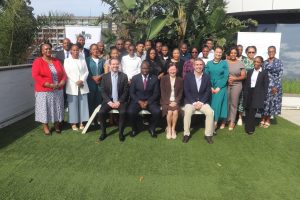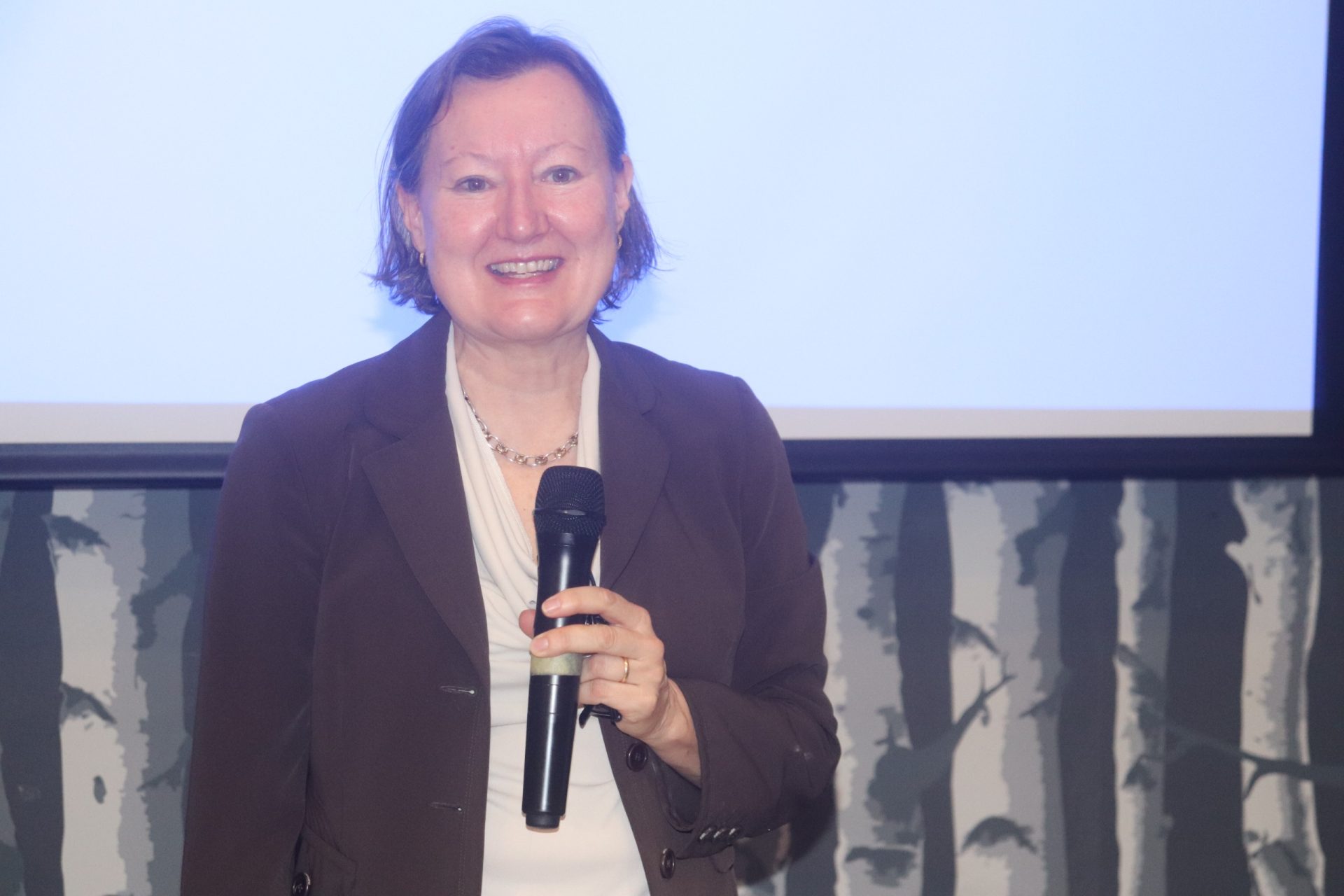By Bahle Gama
Tourism can be a powerful tool in fighting economic decline and unemployment.
Tourism accounts for 10 per cent of the GDP in the European Union made up of 2.3 million businesses, primarily small and medium enterprises (SMEs), and employs around 12.3 million.
This is according to EU Head of Delegation to Eswatini Eva-Maria Engdahl who was speaking during the opening of a three-day workshop on the African Trade Observatory (ATO), Trade in Services component that was held at the Hilton Garden Inn on Tuesday morning.
RELATED: Eswatini exporters must embrace E63.7 trillion AfCFTA market
This initiative, supported by the International Trade Centre (ITC), aims to enhance Eswatini’s capacity to collect and process trade in services data.
For three days, different stakeholders will delve into key concepts, methodologies, and best practices necessary for compiling high-quality trade-in-services statistics.
This will not only support the objectives of the ATO but will also contribute to the successful implementation of the African Continental Free Trade Area (AfCFTA).
Engdahl said travel services including tourism, transportation, hospitality, and beyond are all pillars of economic growth.

“Travel services connect cultures, create jobs, and unlock opportunities for millions,” she noted.
She said that as Africa strides towards integration under the AFCFTA, this sector holds unparalleled potential to drive inclusive development, particularly for MSMEs
Yet challenges do persist, trade in services data presents significant bottlenecks, as reporting remains limited.
Only 56 countries globally provide geographical breakdowns of their services trade, covering only a small part of possible bilateral relationships.
While Europe captures over 90 per cent of its bilateral services trade, Asia’s coverage drops to 36 per cent. African and Middle Eastern economies report no bilateral transactions at all.
According to Engdahl, the ATO is one of the five operational instruments of the AfCFTA and plays a crucial role in supporting businesses and policymakers by providing real-time and reliable trade intelligence across the continent.
By offering insights into market trends, opportunities, and access conditions, the ATO helps to boost intra-African trade through providing detailed trade and market access information for specific opportunities,
RELATED: 30 million people to be lifted out of poverty through AfCFTA, says PM
ssisting entrepreneurs in evaluating and identifying promising markets for their products, supporting Government agencies in tracking the implementation of the AfCFTA and assessing its economic impact and Enabling companies from selected countries to report trade obstacles to competent authorities.
“As part of our support to the African Union (AU) on the operationalisation of the AfCFTA, the European Union already contributed with more than E210 million (€10 million) to the implementation of the ATO,” she said.
Engdahl further noted that Eswatini selected travel as its priority sector for the AfCFTA trade in services component, as it is an important export category for Eswatini.
Improved data will be crucial for understanding trends, competitiveness, and market opportunities.
“This workshop will also build on the good work that has already been done in the country. For example, the Central Bank of Eswatini is now producing data in all principal service categories.
We hope this workshop will help on fine-tuning of the data and possibly publishing bilateral data on trade in travel services,” Engdahl said.
She added that together, the EU the AU represents and carries the voices, hopes and dreams of more than 1.9 billion people, and collaboration is rooted in shared values, common interests and a commitment to multilateralism.
“Both are driving sustainable and people-centred progress, implementing the Join Vision for 2030 aligned with the Africa Agenda 2063 and the EU’s political priorities.”

Meanwhile, Principal Secretary in the Ministry of Commerce, Industry and Trade Melusi Masuku said the ATO’s ability to provide real-time and reliable data is a cornerstone for informed decision-making and strategic planning in the ever-evolving landscape of African trade.
“As we gather here today, we recognize the essential role that the ATO plays in empowering our businesses with the trade intelligence they need to navigate and capitalize on emerging opportunities across our continent,” he said.
The PS noted that the inclusion of the trade in services data management component in the second phase of the ATO project is particularly noteworthy, adding that the support appreciated and welcomed by the country.
Masuku said considering that the lack of detailed and reliable trade data has historically hindered the country’s ability to fully leverage intra-African trade opportunities, particularly in the area of trade in services, the growing importance of services in global trade cannot be overstated.
“Services constitute a significant portion of most African countries’ GDP, including Eswatini and their role in enhancing the diversity and quality of manufactured goods is indispensable.,” he said.
The PS referenced the African Development Bank Country Focus Report of 2024 which state that in 2023, the services sector contributed about 51.3 per cent to Eswatini’s GDP.
However, the current state of trade in services data is limited, with only a few countries worldwide reporting detailed statistics by partner countries.
He said the workshop is designed to address this gap by providing practical guidance on data collection, processing, and dissemination, focusing on travel services within the broader scope of trade in services.
“I commend the ITC and the European Union for their continued technical and financial support provided to the Kingdom of Eswatini, respectively.
Your contributions are invaluable as we strive to create a more integrated and prosperous Africa, “The Africa We Want” and as Eswatini positions herself as the Southern Africa Trade Hub,” he added.


